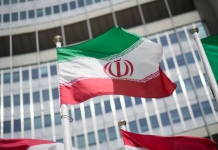——— Fitna al-Khawarij is patronised by Afghan interim govt, says Akram
DM Monitoring
NEW YORK: Pakistan’s permanent representative in UN Munir Akram says Fitna al-Khawarij is patronised by the Afghan interim government.
Addressing the Security Council session on Afghanistan, Akram declared Fitna al-Khawarij the biggest terrorist organisation of Afghanistan.
“Fitna al-Khawarij is carrying out terrorist attacks in Pakistan with the support of the Afghan government,” said Akram. He further said Pakistan would keep retaliating against militants and was ready to cooperate with regional and global organisations to eradicate the Tehreek-e-Taliban Pakistan (TTP).
“The Afghan government should fulfill its international obligations and the international community also should not forget its objectives in Afghanistan,” he emphasised. He also expressed deep concern over alleged suppression of women in Afghanistan.
Earlier, Pakistan’s UN Ambassador Munir Akram on Wednesday warned the UN Security Council of a “serious threat of terrorism within and from Afghanistan”, emphasising that Tehreek-i-Taliban Pakistan (TTP) was fast emerging as an “umbrella organisation” with potential of causing regional destabilisation. The banned TTP, a separate group but aligned with the Afghan Taliban, had escalated attacks on Pakistani security forces since breaking a fragile ceasefire agreement with the then-government in November 2022.
According to a statement posted on the X platform by the Permanent Mission of Pakistan to the UN, Akram, while delivering a statement in the UN Security Council meeting on the situation in Afghanistan today, pointed out the terrorism threat the TTP was posing globally.
“Ambassador Munir Akram termed the TTP, known as Fitna al Khawarij in Pakistan, as the largest terrorist organisation in Afghanistan that is conducting almost daily terrorist attacks against Pakistan with full support and protection of the Afghan Interim Government (AIG) and sponsorship of Pakistan’s major adversary,” the statement quoted Akram as saying.
Islamabad has repeatedly conveyed its concerns to the Afghan government over the presence of terror outfits, including TTP, inside Afghanistan, saying that the militants have consistently used Afghan soil to launch terror attacks inside Pakistani territory. Kabul denies the allegations. Indicating the TTP’s potential to cause regional destabilisation, Ambassador Akram said that the terrorist group was “fast emerging as an umbrella organisation that is now coordinating with secessionist groups such as Majeed Brigade.”
“And, given its long association with Al-Qaeda, it will not be long before the TTP becomes the spearhead for Al-Qaeda’s planned regional and global terrorist goals,” Ambassador Akram warned.
He asked the world to be concerned about the threat a strengthened TTP poses in the not-too-distant future. Akram added that Pakistan was ready to cooperate with regional and international organisations to eliminate the TTP threat and will continue to take national action against the terrorist organisation.
The envoy reaffirmed Pakistan’s dedication to supporting a peaceful and stable Afghanistan, echoing the shared aspirations of its neighboring countries and the international community for greater political inclusivity in Afghanistan.
“Pakistan firmly believes that such inclusivity is vital for enhancing the prospects of stability and normalisation within that country,” he said.
However, the Pakistan UN envoy expressed deep concern about the ongoing violations of human rights by the Afghan interim government, particularly against women and girls.
“The Afghan interim government has not only reneged on its commitments regarding women and girls but has exacerbated the situation by issuing new directives aimed at silencing their voices,” he stated.
Ambassador Akram said Pakistan strongly condemned these actions and said that “these backward measures violate the true essence of our enlightened religion, which was among the first to uphold equal rights for both men and women.”



